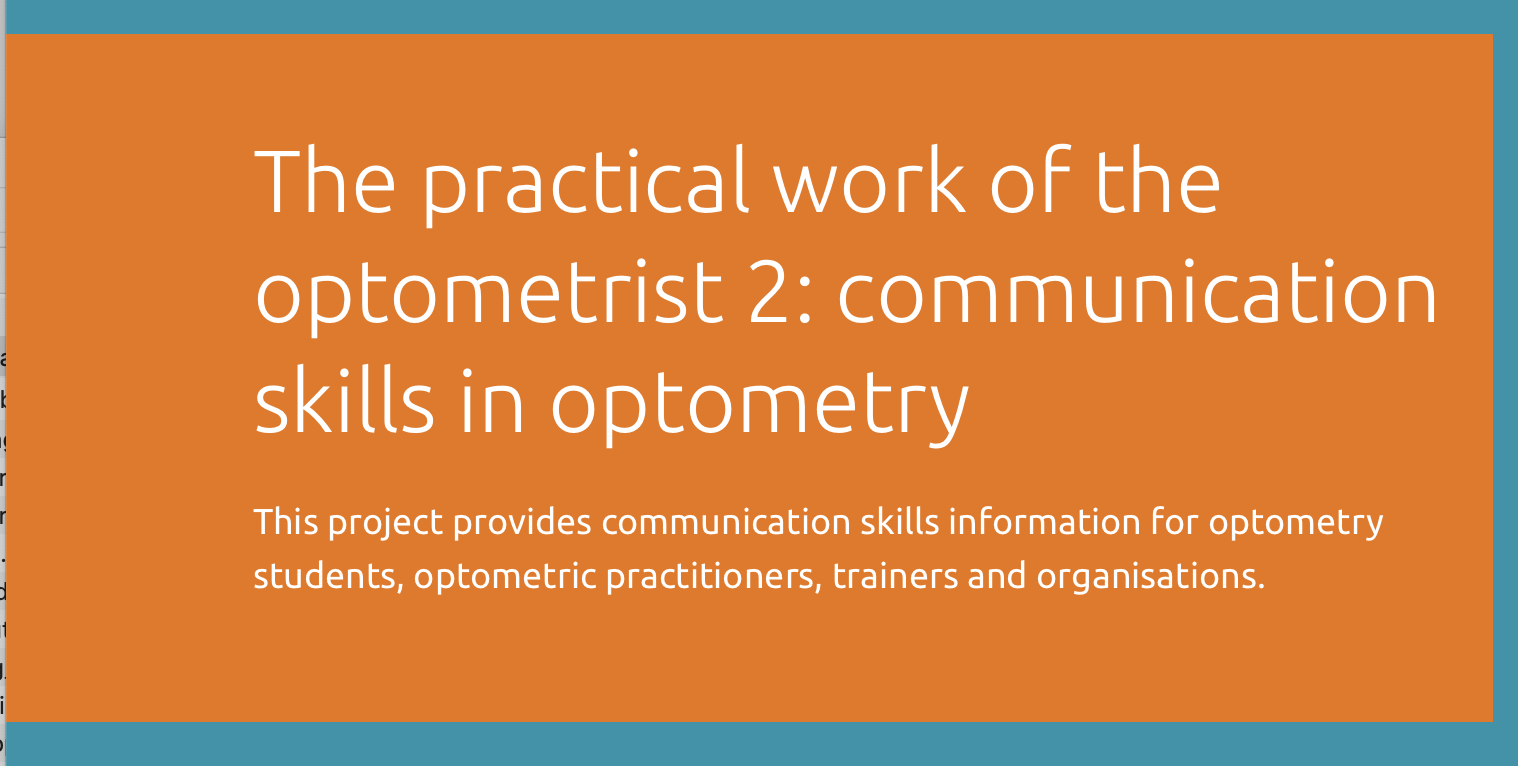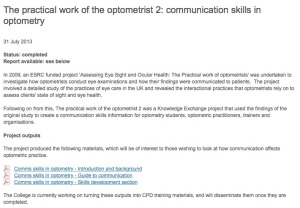The changing role of the optometrist in assessing eye-sight and eye health during and after Covid-19
King’s Business School have a 4 year, fully funded PhD studentship (fees and stipend) available to undertake research concerned with communication and interaction in remote optometry consultations. The successful candidate will be expected to undertake qualitative, in-depth, studies of the organisation of eye examinations undertaken via telephone, video-phone, etc. Their research will relate to previous video-based studies of communication and interaction undertaken by the supervisory team.
The successful candidate will be a member of the Work, Interaction & Technology Research Group at King’s Business School. Members of the WIT Group are concerned with social interaction in organisational settings, examining the interplay between social interaction and technology. Candidates will undertake naturalistic studies of communication and interaction in optometry that draw on ethnographic and video-based research methods. They will have a social science background and have received training in qualitative research methods, including ethnomethodology and conversation analysis, ethnography, qualitative interviewing and grounded theory.
The PhD project will be undertaken in collaboration with the College of Optometrists and co-supervised by Professor Dirk vom Lehn (KCL) and Professor Peter Allen (Anglia Ruskin University, Cambridge). It, therefore, provides candidates with the opportunity to develop a distinctive approach to their research.
The successful candidate will begin in October 2021.
For further information, please contact Professor Dirk vom Lehn at dirk.vom_lehn@kcl.ac.uk
Application Information
Early applications are encouraged. Applicants are strongly advised to contact the supervisor Professor Dirk vom Lehn at dirk.vom_lehn@kcl.ac.uk
Please submit the following to kbs-phd@kcl.ac.uk by the 31st of July 5pm.
- Copy of your CV
- One academic reference letter
- Letter of interest (1-2 page) including how you would be a best fit for the project.
Note – applicants must check that they meet our entry requirements prior to applying
You should hold, or be completing, a Master’s degree with a Merit or higher (or overseas equivalent) and have achieved a 2:1 Bachelor’s degree (or overseas equivalent) in a relevant subject.
English language requirements
If you are a native English speaker or have been awarded a degree within the last five years from one of the countries listed here, you may not be required to take an English language test. English language competency is assessed on a case-by-case basis.
If your first language is not English you must be able to provide recent evidence that your spoken and written command of the English language is adequate for the programmes for which you have applied. Check our English language requirements here (Band B). You can use our pre-sessional English calculator to check if your language scores meet our requirements.
Please note, we cannot review individual eligibility before you apply and are only able to consider complete applications which include all supporting documents.
Application Procedure
Shortlisted candidates will be invited to an interview and the successful candidate will be asked to submit their formal application via King’s Apply online system.
Please contact kbs-phd@kcl.ac.uk if you have any queries regarding the application procedure.


